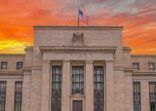John Bellows, Western Asset’s portfolio manager and research analyst, said that the Federal Open Market Committee’s decision this month to defer a rate hike demonstrates it’s willingness. to change the path of policy as a response to changes in the outlook.
“The Fed still appears on track to raise rates this year (considering) that [Federal Reserve Chair Janet] Yellen went out of her way to minimise the importance of the FMOC’s decision (on 17 September),” Bellows noted.
Rick Rieder, Blackrock’s CIO of fundamental fixed income, noted that the Fed’s statement, while generally in line with prior announcements, increasingly recognises that recent labour market improvement and other signals suggest that the economy is ready for an initial liftoff from current policy rates before year end.
Nigel Green, deVere Group’s founder and CEO, noted that although a rate raise did not happen on 17 September, 2015, “it will happen eventually and probably, as Yellen hinted, before the end of the year”.
Jim McCaughan, CEO of Principal Global Investors told Fund Selector Asia that the FMOC should have increased rates when they met on 17 September, 2015. He noted that the US economy is strong enough for a normalisation of rates.
“I can understand that [the FMOC] is nervous about a stronger dollar and the lack of inflation. Also, I think that [the rate] has been eagerly watched because [of the volatility] in emerging markets,” McCaughan said.
Like other industry sources, McCaughan reckoned that a rate hike is likely to take place this year, and he forecasted that it could take place in December.
The FMOC has two more opportunities to tighten interest rates this year. The first is on 27-28 October and again on 15-16 December.
While waiting for the FMOC to make its move, Green noted that investors should factor in the effect of a possible market correction on their portfolios.
“It is critical to remain aware of the volatility and its causes, to have a fully diversified portfolio across asset classes, geographical regions and industrial sectors to manage risk,” Green said.
“Equity valuations do appear to be fundamentally sound, so any China or US rate-related volatility is worth taking advantage of when possible,” Green added.
















